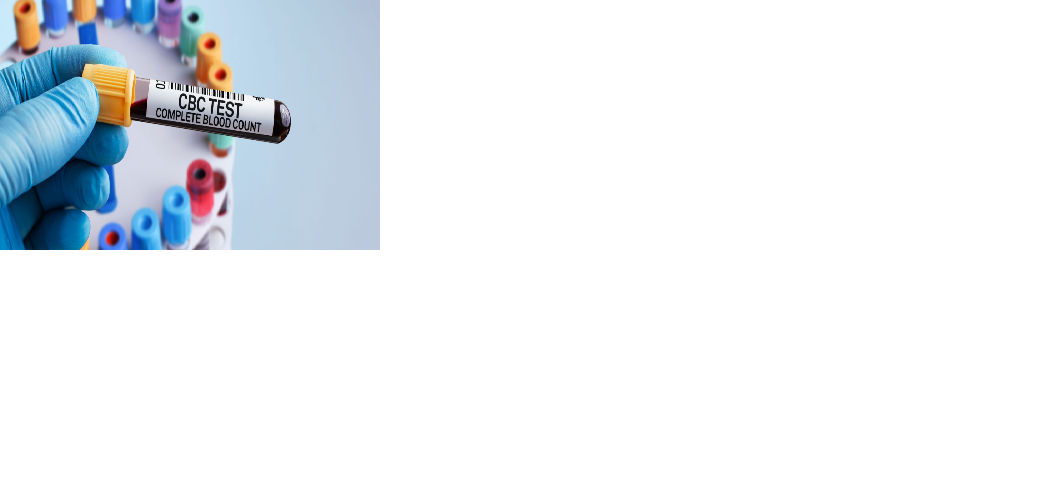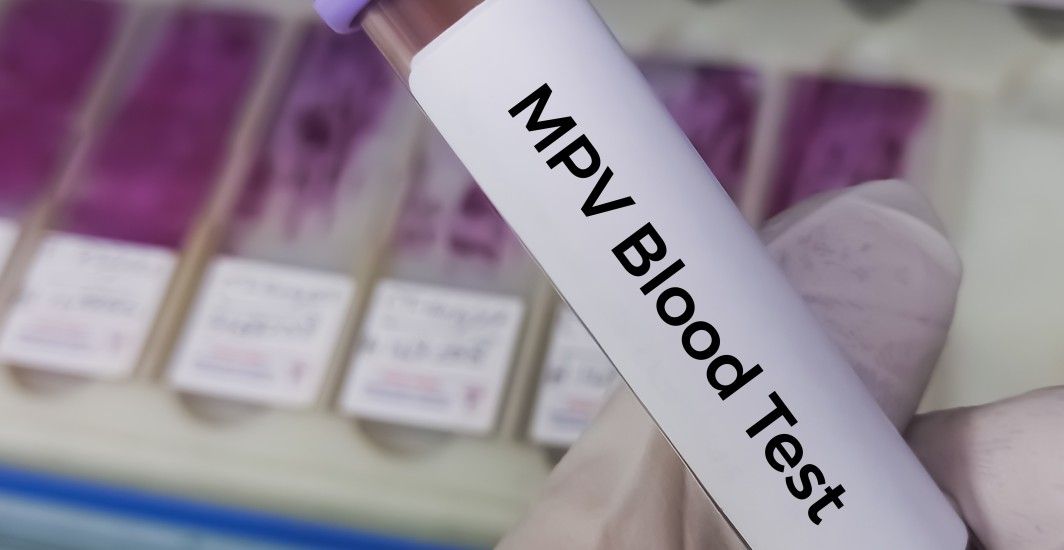General Health
A Complete Blood Count Test Can Indicate Cancer
5 min read
By Apollo 24|7, Published on - 27 July 2023, Updated on - 07 August 2024
Share this article
0
0 like

Cancer is one of the deadliest diseases that affect thousands of people globally every year. Early detection plays a vital role in improving the chances of successful treatment and survival. While there are various diagnostic tools available for cancer detection, one commonly used test is complete blood count (CBC). This blog will discuss CBC, what importance it has in the early diagnosis of cancer or if CBC blood test indicates cancer.
What is a CBC Blood Test?
A complete Blood Count (CBC) blood test is a standard test conducted to provide information about the overall health of a person. It tests different components of blood like red blood cells (RBCs), white blood cells (WBCs), and platelets, as well as hematocrit and haemoglobin. CBC blood test is usually done by collecting blood from the veins in the arm. The blood sample is subsequently transported to a laboratory where it undergoes thorough examination.
When is a CBC Test Recommended?
CBC blood test is routinely recommended as a standard blood screening procedure. It is suggested to assess overall health and detect a wide range of medical conditions based on blood cell counts and other parameters.
1. Diagnosing infections
CBC helps to identify infections that can occur in the blood by measuring the number of white blood cells. An elevated white blood cell count may indicate the presence of an infection, allowing healthcare providers to initiate appropriate treatment promptly.
2. Detecting anemia
Anemia is a medical condition marked with a decrease in the number of red blood cells or hemoglobin levels. CBC helps determine the severity and underlying cause of anaemia, including iron or vitamin B12 deficiency, enabling healthcare professionals to recommend appropriate interventions.
3. Assessing bleeding disorders
Platelets are essential for blood clotting. CBC test helps in measuring platelet levels and any abnormalities such as bleeding disorders (like thrombocytopenia) or platelet dysfunction. Timely identification of these conditions is crucial for effective management and prevention of excessive bleeding.
4. Evaluating immune system abnormalities
Deviations from CBC test normal ranges can indicate immune system abnormalities, such as autoimmune disorders or immunodeficiency conditions, guiding further investigations and treatment strategies.
5. Monitoring overall health
Regular CBC tests help healthcare providers monitor an individual's overall health. This allows them to make informed decisions regarding further investigations, treatment plans, and overall healthcare management.
Role of CBC Blood Test in Cancer Detection
CBC helps in the early detection of cancer. Abnormalities in blood cell counts and other parameters observed in the test result can serve as valuable clues that prompt further investigations for confirming the presence of cancer.
1. White blood cell count
An abnormal increase in white blood cells can potentially be an indicator of any form of cancer. The extremely high rise of white blood cells indicates leukaemia, which is a cancer of the blood and bone marrow. On the other hand, a low count of WBCs may indicate the suppression of bone marrow, which if not treated can turn out to be fatal.
2. Red blood cell count
Abnormalities in red blood cell counts, such as a decrease in haemoglobin levels or hematocrit, can be suggestive of certain types of cancers, including solid tumours. Anaemia can also be a sign of underlying cancer.
3. Platelet count
An abnormal platelet count that is too high or too low can indicate cancer such as leukaemia, lymphoma and solid tumours. Thrombocytosis (excessive production of platelets) can be an indication of underlying cancer.
Types of Cancers Detected by CBC Tests
CBC test results can help healthcare professionals diagnose the following cancer:
1. Leukaemia
CBC can often detect abnormalities in white blood cell count, such as extremely high or low counts, which can be indicative of leukaemia, a type of blood cancer. Patients diagnosed with acute or chronic leukaemia may present with extremely high white blood cell counts, ranging from 100,000 to 400,000.
2. Lymphoma
Lymphoma is a cancer of the lymphatic system which is caused by imbalances in the white blood cell count. The normal range of WBC count is 4,500 to 11,000 WBCs per microlitre. If not diagnosed or cured in time, lymphoma can cause serious health issues.
3. Multiple myeloma
CBC test may reveal a decrease in red blood cell count and abnormal protein levels, which can be associated with multiple myeloma (cancer affecting plasma cells in the bone marrow). The normal RBC range in males is 4.7 to 6.1 million cells/mcL and 4.2 to 5.4 million cells/mcL in females.
4. Solid tumours
In some cases, CBC test can indirectly indicate the presence of solid tumours by revealing anaemia, low platelet count, or other abnormalities like leukocytosis (increased WBCs), thrombocytosis, and elevated erythrocyte sedimentation rate (ESR) that may be related to cancer.
Conclusion
Although CBC blood test cannot definitively diagnose cancer, it serves as a valuable tool in cancer detection by identifying potential abnormalities that warrant further investigation. Early detection of cancer significantly improves the chances of successful treatment and better outcomes. It is always a feasible option to go for a CBC test since it not only helps detect cancer but also other underlying diseases.
FAQs
Q. Can a CBC blood test diagnose cancer?
No, a CBC blood test cannot diagnose cancer, but it can provide important indicators that prompt further investigation for cancer detection.
Q. Are CBC blood tests routinely performed during cancer treatment?
Yes, CBC tests are frequently performed during cancer treatment to monitor the patient's blood cell count and overall health status.
Q. Can a CBC test detect all types of cancer?
No, CBC blood test does not help detect all kinds of cancers. It can assist in diagnosing only certain types of cancer like lymphoma or leukaemia.
Q. How often should I get a CBC blood test done?
The frequency of CBC blood tests depends on various factors, including your overall health, medical history, and specific concerns. It is preferable to consult a healthcare expert for overall recommendations.
Medically reviewed by Dr Sonia Bhatt.
General Health
Leave Comment
Recommended for you

General Health
Easy Bruising Or Nosebleeds? MPV Blood Test May Explain The Reason
Experiencing easy bruising or frequent nosebleeds? Learn how the MPV blood test can reveal platelet issues and help diagnose underlying health conditions.
.jpg?tr=q-80)
General Health
Vitamin D Vegetables: How To Include Vitamin D-Rich Vegetables In Your Diet
Discover the best vitamin D-rich vegetables and easy ways to include them in your meals. Boost your vitamin D intake naturally for better health!

General Health
Craving Sweets Constantly? Check Your HbA1c Levels to Explain the Cause
Subscribe
Sign up for our free Health Library Daily Newsletter
Get doctor-approved health tips, news, and more.
Visual Stories

Science-backed Home Remedies for Burns and Blisters
Tap to continue exploring
Recommended for you

General Health
Easy Bruising Or Nosebleeds? MPV Blood Test May Explain The Reason
Experiencing easy bruising or frequent nosebleeds? Learn how the MPV blood test can reveal platelet issues and help diagnose underlying health conditions.
.jpg?tr=q-80)
General Health
Vitamin D Vegetables: How To Include Vitamin D-Rich Vegetables In Your Diet
Discover the best vitamin D-rich vegetables and easy ways to include them in your meals. Boost your vitamin D intake naturally for better health!

General Health